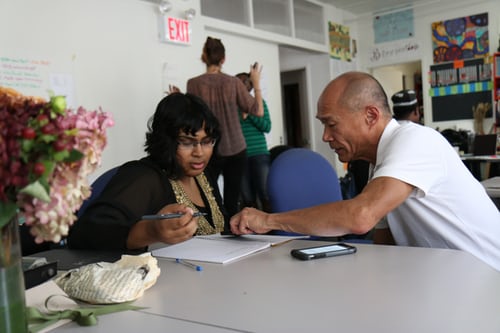How do you choose a mentor? The first step is being clear about why you want a mentor and write it down. What do you want to learn? Are you looking to learn specific skills? What motivates you? Having a clear objective will help you find the most suitable mentor and will keep you focused on your goal. Remember, mentoring is a relationship, you get out of it what you put into it. Once you have decided to look for a mentor you must put time aside to dedicate yourself to the mentoring process.
Where do you start? Look for someone who can give you advice and inspire you to achieve your goals. This person may be working in the same organisation, in your network, even in online forums. Focus on people who you respect and have built rapport with. This person could be from a different generation or industry. When you have found the right person the next step is to approach them with clear and open communication. Explain why you would be a suitable mentee and why you believe you could work well together. Remember to respect their time. People who have the skill set to be great mentors are often very busy doing the very things that make them great mentors.

You need to meet on a regular basis and make sure it’s a convenient time and location. Be organised by having a list of questions ready, keep it short and remember to send a thank you note. Inform them of how their advice is making an impact on your goal. Your meetings could be online, on the phone or in person, either way, make the most of each meeting by being transparent. Transparency will help your mentor to understand what you need and how they can assist you in attaining your goals.
Mentoring is a two-way street, the mentor also has goals which they can fulfil through mentoring. Keep this in mind when you receive any feedback. The mentor can only go by what you tell them, so be sure to be clear about what you have found useful and what’s not working for you. It may be your approach that’s holding you back, rather than the advice you received. Flexibility is key. Some of the outcomes achieved may be different to your expectations, however, this is often an opportunity to move your goals into a different and better direction.
Take note of how the relationship is progressing. Do you feel comfortable with your mentor? Is there rapport between you? If not, you could have picked the wrong mentor. Or you could be misrepresenting your goals and needs. Or perhaps you have unrealistic expectations. Mentoring is an ongoing process, be patient, this is not a formal relationship – there is a degree of flexibility required. When seeking a mentor avoid using the term ‘mentor’. Instead, consider whether you can be completely open and honest. Has the mentor shown a real interest in you and what you are striving for? Does the mentor remember important facts and details you have previously mentioned? Do they understand your role and industry? Has their feedback contained actionable advice that is easily applied? Is their feedback specific enough for your needs? Look at the experience gap. If there is more than ten years of experience between you they may be too senior. Do they give you their undivided attention when you meet or do they seem distracted?
A mentor will be considering if they can be helpful based on your approach. They need to weigh up whether they can address your specific needs. The mentor will be looking at your level and depth of openness and honesty. Are you willing to share your vulnerabilities? Will you be proactive? Will you have prepared specific questions? Is meeting with you giving them a chance to learn more about themselves and their career? Do they feel that meeting with you is a good use of their time?
Consider asking your set of questions, outlined above, to the potential mentor. How do they respond? For example, what do you they know about your role or industry? These questions will show that you are prepared and serious about the potential relationship. Their response will help you to decide on the best possible candidate. Once you have found a few possible candidates, send them the mentor questions listed above so they can use it as gauge for them to consider the potential mentoring relationship. This shows you have certain expectations of the mentor and will weed out the ones that can’t invest in you. If you both answer all questions positively, then you have a a very strong indication of a potentially good and productive relationship.
At Picnic Point Toastmasters we use a similar process in our mentoring program. We match your needs with an experienced Toastmaster who will serve as a role model and support you through the stages of your Toastmasters journey. Picnic Point Toastmasters meet at 7pm every 1st and 3rd Tuesday at Club Picnic Point – 124 Lambeth Street, Panania.
“Mentoring is a brain to pick, an ear to listen, and a push in the right direction” (John Crawford Crosby, American politician).









You must be logged in to post a comment.